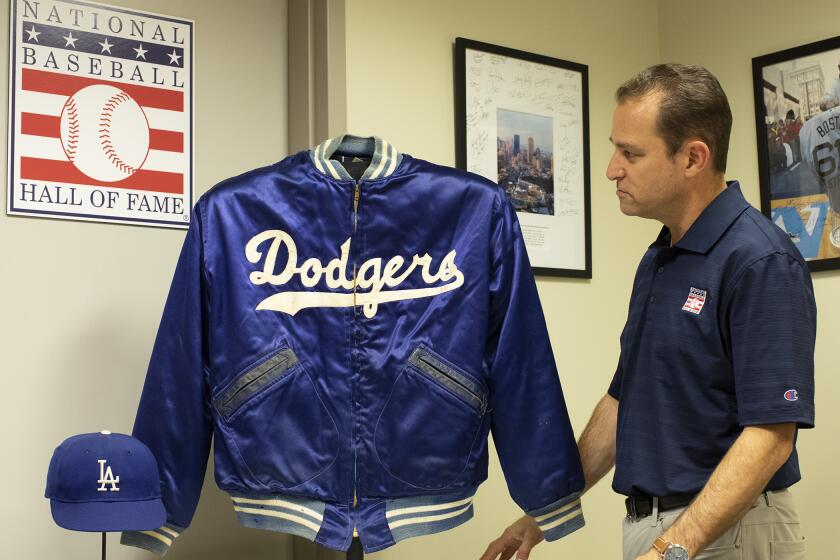Judge orders Dodgers to release details of deal with Frank McCourt [Updated]
- Share via
The owners of the Dodgers must reveal details of their financial arrangements with former owner Frank McCourt, a judge ruled Wednesday.
Los Angeles Superior Court Judge Scott Gordon denied the Dodgers’ request to seal a summary of the deal with McCourt and said the document would become publicly available June 17 unless Guggenheim Baseball Management succeeds in an appeal before then.
[Updated 3:48 p.m., June 5: “We respect the court’s opinion, are not going to seek to appeal and will be cooperating accordingly,” Guggenheim spokesman Michael Sitrick said.]
The financial summary could reveal that the deal was worth more than $2.15 billion, the publicly announced sale price of the Dodgers.
“It shows Mr. McCourt got value way beyond $2 billion,” said Bert Fields, an attorney for Jamie McCourt, the ex-wife of Frank McCourt.
Jamie McCourt obtained the financial summary as part of her litigation against her ex-husband, in which she has asked Gordon to throw out her $131-million divorce settlement. She alleges that Frank McCourt fraudulently misled her about the value of the Dodgers and their assets, a charge he denies.
Guggenheim bought the Dodgers for $2 billion last year, and an affiliated entity financed the purchase of the surrounding land for $150 million. The accompanying financial arrangements — the ones Guggenheim sought to keep secret — include data about how Guggenheim and Frank McCourt will share profits from a joint investment venture, according to a court filing.
Guggenheim had argued that financial disclosure would harm the Dodgers’ ability to lure another sports team to the Dodger Stadium site.
“When you’re playing poker, you don’t play with some of your cards face up,” Derek Sarafa, an attorney for Guggenheim, argued in a hearing Wednesday.
Sarafa also argued that the publicly revealed purchase price — more than 16 times the value of Jamie McCourt’s settlement — should provide enough information in helping Gordon determine whether to throw out the divorce settlement.
But Gordon said the speculative value of real estate investment was relevant, just as the speculative value of a regional sports network was relevant.
“That’s at the heart of this case,” Gordon said.
Gordon agreed with Kelli Sager, an attorney representing the Los Angeles Times, in saying that the public had a compelling interest in understanding the outcome of the highly publicized divorce proceedings. He noted that each of the McCourts had submitted numerous news articles in support of various arguments since the proceedings began in 2009.
At the outset of the case, Gordon said, an attorney had argued that the Dodgers be represented separately from Frank McCourt — even though he then owned the team — because of the importance of the team to its fans and to Los Angeles.
“That set a tone for the consequence of what we are dealing with,” Gordon said.
More to Read
Are you a true-blue fan?
Get our Dodgers Dugout newsletter for insights, news and much more.
You may occasionally receive promotional content from the Los Angeles Times.








